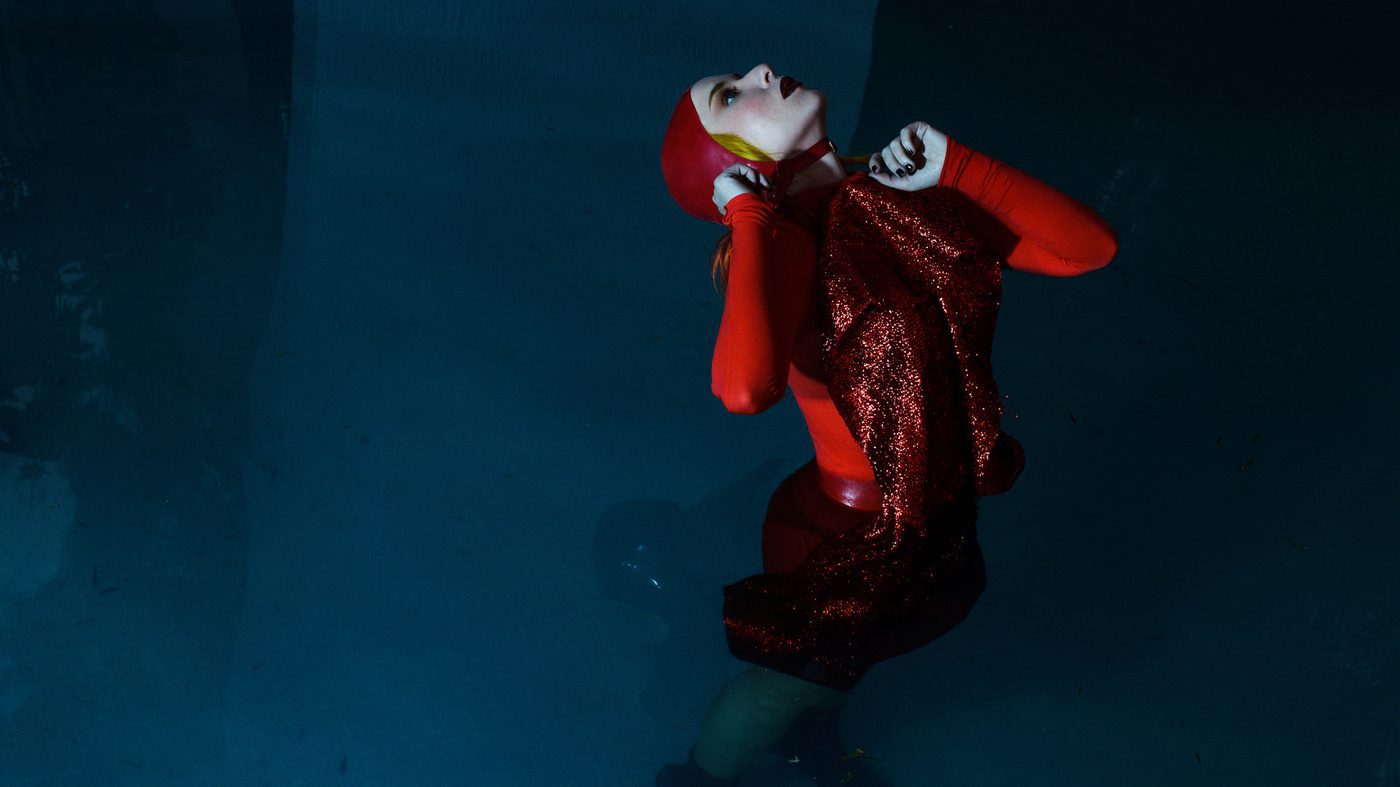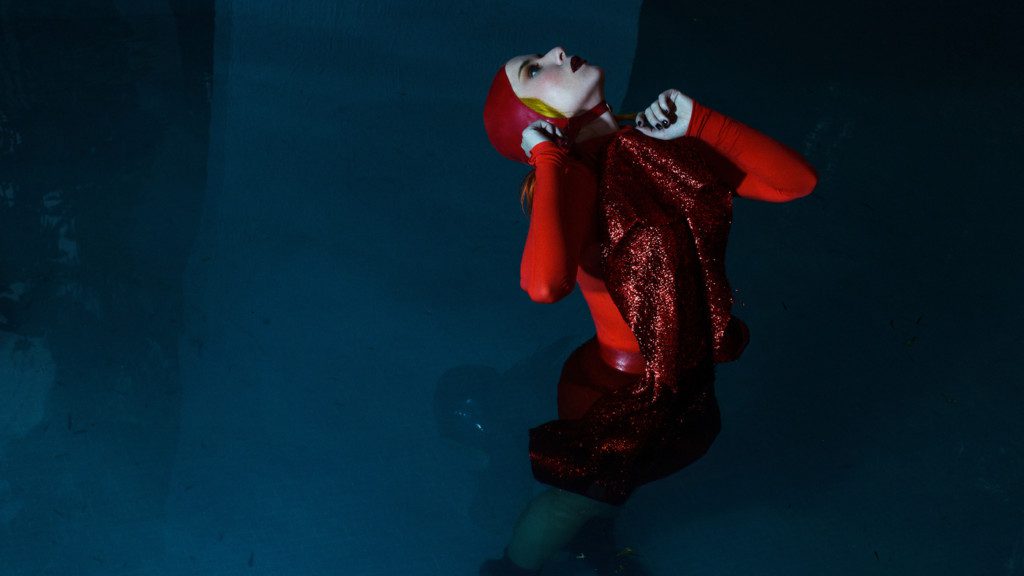LIVE REVIEW: Austra @ Warsaw

There aren’t a whole lot of pop stars that are moved by The Accelerationist Manifesto – the philosophical text penned by Nick Srnicek and Alex Williams. In fact, I’d feel safe waging that Austra’s Future Politics is the only electro pop LP to be inspired by the post-capitalist school of philosophy.
Crudely put, Accelerationism in its left-wing iteration is the eventual deterioration of capitalism by way of its own expansion – the theory that capitalism will asphyxiate from dwindling oxygen in a room it has outgrown. Metaphors that come immediately to mind include the metastasizing of cancer cells, and Violet Beauregarde from Roald Dahl’s Charlie and the Chocolate Factory. Violet is so inundated with the object of her desire (gum) that she expands and near explodes. The desired object, in excess, is her demise.
All of this is rolling around in my head as I stand in a large crowd at Greenpoint’s Warsaw, waiting for Katie Stelmanis and company to appear on stage. Admittedly, I am a newcomer to Austra’s music, but I suspect I am the only one, as the room buzzes with anticipation around me. I reflect on Austra’s video for their new record’s title track, and wonder if it was inspired just a teensy bit by John Carpenter’s Orwellian film They Live.
The music video opens with a manifesto of its own:
“How do we find hope when things seem so bleak?
For me, hope lies in the future. It lies in the potential of a future world that doesn’t exist yet; a world can be created only if we can imagine it. It’s time to build visions that are radically different from anything we’ve known before.
It’s time for future politics.”
Austra’s music videos are frequently narrative, and “Future Politics” bears no exception. Aerial shots depict hoards of unconcerned citizens on autopilot – walking to work like zombies in a shining but sterile metropolis. Like Rowdy Roddy Piper’s (RIP) character in They Live, Austra’s subjects undergo an awakening, signaled by a bloody nose and epileptic dance moves.
“I don’t wanna hear/That it’s all my fault,” Stelmanis sings. “The system won’t help you when/Your money runs out.”
They are forever changed after their revolutionary activation, and find refuge amongst like-minded outcasts on the edge of town, relishing in the little nature that is left for them.
At Warsaw, the stage is bathed in carmine light. Stelmanis seems fond of the color red, as it overwhelms the cover of Future Politics and many of the singer’s outfits. I can’t help but feel that it’s intentional – the sanguine shade of revolution, love, and anger. One of three keyboards is emblazoned with the words “BRIGHT MUSIC, DARK TIMES.” On the corners of the stage, orange “flame” props blow around like air dancers at a car dealership. When Austra finally take the stage, (Stelmanis in a long crimson dress) they burst without hesitation into Future Politics’ opening track, “We Were Alive,” which exhibits Stelmanis’ otherworldly voice. Live, the song gives me chills, in part for its musicality, but also for its beautiful bleakness. “What if we were alive?” Stelmanis bellows. I wish I had the answer to her question.
Austra plays several songs from their new LP, all in album order. Stelmanis says very little between songs, which surprises me slightly. Due to the political nature of the record, I half expected some rhetoric – words of upheaval or inspiration at the very least. But perhaps her music is enough. Art has been a medium of dissent since its birth; you don’t need a sermon to understand that George Orwell was critical of the government, or that Francis Bacon wasn’t a big fan of the Catholic Church.
But understanding the subtext of art doesn’t guarantee a revolution. Art will always reflect our societal consciousness, whether intended by its maker or not. The artist is a medium through which we understand our world. Art is inevitable. Action is up to us.
Check out Austra’s latest video, “I Love You More Than You Love Your Self,” below. Future Politics is out now on Domino Records.


